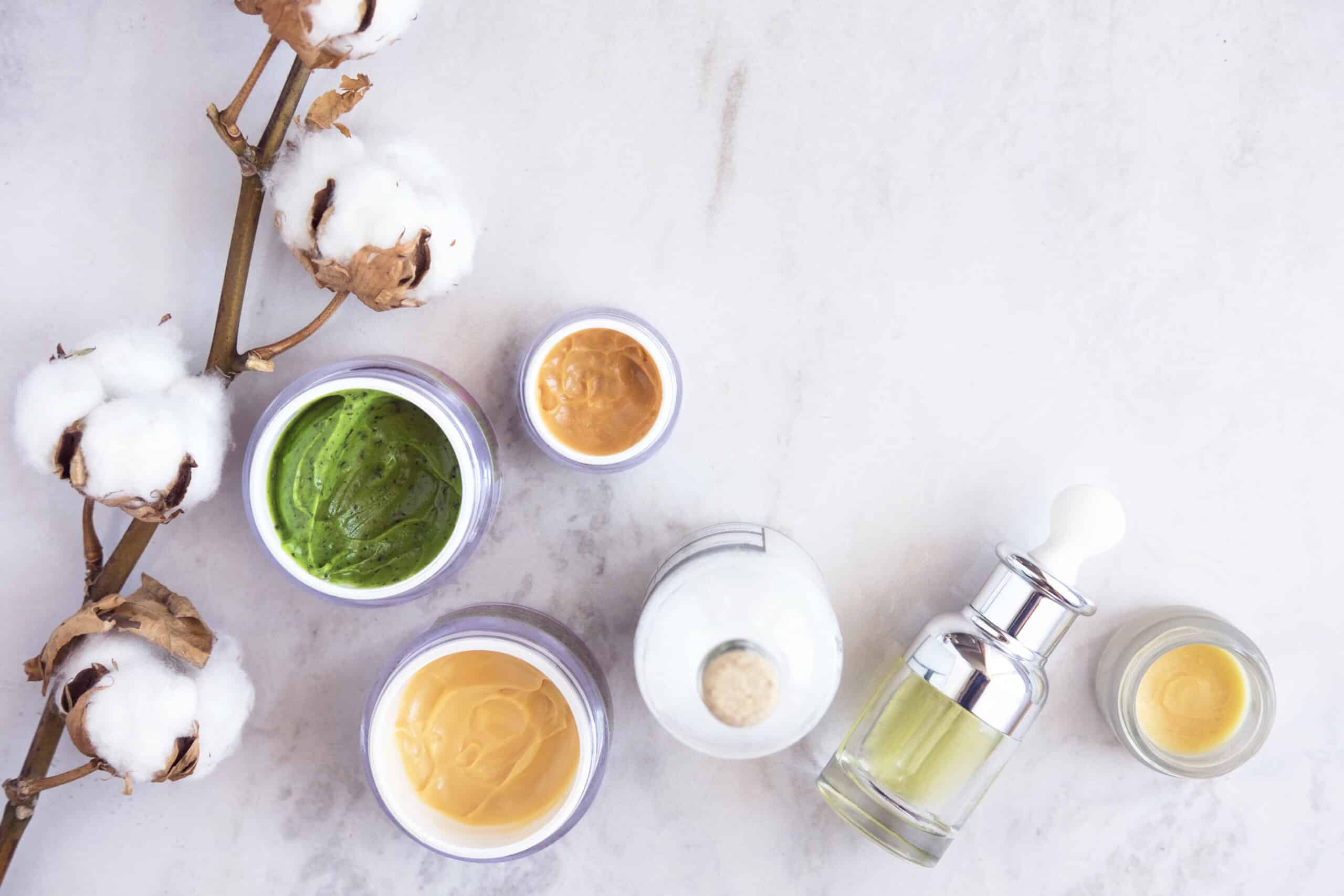Maintain a Regular Routine
Consistency is vital when attending to your skin health. Often, the most impactful actions are the cumulative steps you take over time. This is why a solid skincare routine is the first aspect to focus on.
Some of the key elements of a good routine are:
- Cleanser: A good cleanser is the foundation of any regular healthy skin routine. Many people both start and end their days with it. This helps to ensure that the accumulated grime both from the outside world and during sleep is removed. Be mindful of how well-matched the cleanser is to your skin, though. If you have dry skin, avoid cleansers so harsh that they strip your skin of oils.
- Serum: Using serums is an individual choice based on your unique needs. This is effectively utilizing a product to feed your skin. For instance, some serums contain vitamin C to protect your skin and give it a more even complexion. Others are designed to improve texture or to help address acne. Take the time to research the effects of each serum to match it to your skin health needs.
- Moisturizer: While there are various other elements of a skin health routine, moisturizing is one of the most important final steps. Firstly, it helps to form a barrier that locks in the nourishment of the previous steps of your routine. It also provides your skin with the vital hydration it needs, particularly if you have difficulty producing natural oils.
While a consistent skin health routine is vital, it’s also important to make seasonal changes and additions. Your skin will face different challenges depending on the changes in weather and climate in your area. For instance, you’ll need sunscreen that is most appropriate for the ultraviolet (UV) exposure your skin is likely to have.
Prioritize Your Mental Wellness
It is not just the physical environment that can affect your skin health. Your mental wellness is also a contributor. For instance, stress is known to have a negative impact on the skin. It’s one of the key causes of telomere shrinkage, which can exacerbate the aging process. You may also find that emotional pressure interferes with how well the skin barrier functions, affecting its ability to safeguard against toxins.
This is why it’s so important to take steps to prioritize your mental wellness. Some of the actions you can incorporate into your regular routine include:
- Mindfulness: This involves regularly taking the time to mentally check in with yourself and focus purely on the present moment. Many people find that this couples well with a meditation practice. Just 5 minutes a day can be a powerful tool in mitigating stress and identifying the sources of it.
- Exercise: Being active regularly has long been considered a vital tool for mental wellness. This is partially because exercise reduces the release of stress hormones and releases endorphins that can boost your mood. Alongside boosting the positive mental wellness impact on your skin, exercise also improves your oxygen intake. This may flush the toxins that reside in your skin.
It’s worth remembering, though, that you may not be able to handle all mental wellness challenges on your own. Just as you might go to see a dermatologist for a skin complaint, be open to collaborating with a therapist. They can help you explore tools that empower you to manage your psychological health on your way to better skin.
Adopt a Skin Health Diet
What you put into your body also influences the well-being of your skin. Some foods contain nutrients that promote your skin’s functions and appearance. Others will leech your skin of the resources it needs to thrive. Therefore, it’s vital to make mindful choices about your day-to-day diet.
Some of the components of a diet that promotes skin health include:
- Antioxidants: Free radicals are often seen as a key cause of skin deterioration. Among the resources that can mitigate this damage are anti-aging antioxidants. Broccoli, spinach, and carrots are known to contain high levels of antioxidants. Wines contain various forms of antioxidants, too. Proanthocyanidins in red wine grapes have anti-inflammatory properties, while the flavonoids in white wines may be beneficial for allergic conditions such as dermatitis.
- Hydration: Staying hydrated may sound like a basic part of your diet, but it’s something that too many people still overlook. It’s vital to drink plenty of water, keep in mind that the amount of water an individual needs can vary from person to person, but according to the Mayo Clinic adequate daily fluid intake is around 15.5 cups for men and 11.5 cups for women throughout the day. Firstly, this has the direct effect of hydrating your skin. It also tends to flush impurities and toxins from your pores. Not to mention that it’s essential for functioning organs, which boosts the holistic wellness that, in turn, impacts your skin health.
Remember, though, that skin health shouldn’t monopolize your food and drink choices. Make certain that any decisions you make still allow you to maintain the nutritionally balanced diet you need to thrive.
Conclusion
Your skin plays a key role in your overall wellness, so it’s important to maintain its health. Form a strong foundation by focusing on the range of factors that influence skin quality, from care routines to nutrition. Additionally, you should take steps that address the unique needs of your skin. You may find it helpful to collaborate with a dermatologist or other skin care specialist to better understand what your skincare challenges are and how you can best address them.




